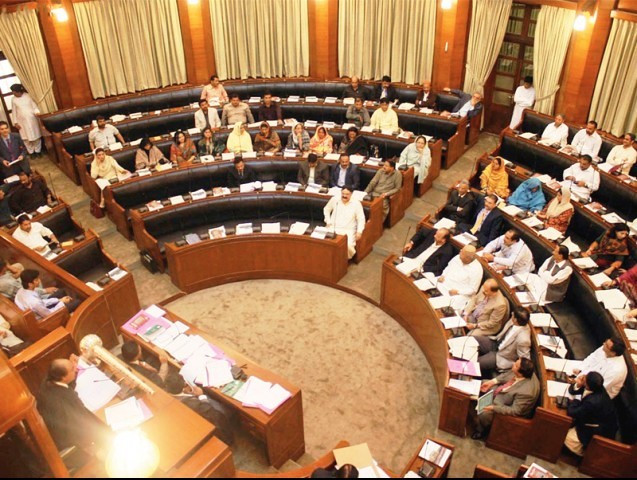The upcoming local government elections could provide an opportunity to address issues of governance in Karachi provided the local governance system is strengthened to compensate for the division of the province into a rural and an urban part.
A discussion on these issues is normally framed in terms of the political parties involved. Unless some structural issues are addressed, a change in political parties would only be a change at the margin.
One of the problems with Sindh is that it is the only province in Pakistan where a distinction has been made between urban and rural areas. An unintended consequence of this is that no matter how the urban votes are cast, the management of urban Sindh will always lie with the representatives of the rural areas, since the rural seats in the provincial assembly are more than those for the urban areas.
Those who have the responsibility of addressing local issues for the urban areas have no interest in doing so, since their vote bank comes from the rural areas.
The people of urban Sindh have genuine needs that relate to delivery of services for the health and education sectors, water, sanitation and garbage collection, energy and traffic management, like any other large metropolitan area. They also have issues related to the law and order situation which are more urban Sindh-specific. The biggest problems are target killers, protection rackets, land grabbers, drug gangs and the influx of the Tehreek-e-Taliban Pakistan (TTP) and affiliated sectarian groups in the area of the metropolis.
The real solution is that the local governance system is modified so that the political representatives of the people are made responsible for all areas that affect the lives of the people living there and the necessary resources are allocated to them. They will have a direct interest in doing so. If they do not, they will be thrown out in the next elections.
This will be possible only if we devolve the responsibility and resources to a third tier of the government and implement a strong local governance system.
We see that when responsibility was actually devolved to this level, as was done during General Musharraf’s time to mayor Naimatullah Khan of the Jamaat-e-Islami (JI) ( 2001- 2005), or to Mustafa Kamal of the Muttahida Quami Movement (MQM) (2005- 2010), urban Sindh and Karachi witnessed tremendous progress.
On the other hand, we see that without this further delegation of resources and responsibility downwards, the previous tenures of the mayors from the same political parties – Abdul Sattar Afghani (JI and MMA 1978 -1987) and Farooq Sattar (MQM 1988 to July 1992) – were not as effective.
The upcoming local government elections can provide the necessary opening provided that:
(a) The remit of the local governments in urban Sindh are strengthened to include all areas related to service delivery and law and order that affect the lives of the citizens. The enhanced scope of local government responsibilities in Sindh is necessary to accommodate the aberration of the rural-urban divide that exists in Sindh;
(b) Elected representatives, not bureaucrats are made responsible for these areas;
(c) Resources allocated within the provincial budget for these areas are divided in proportion of the populations of rural and urban Sindh so that this distribution is even handed; and finally,
(d) Measures are incorporated into the system of disbursement of funds so that amounts allocated for the third tier would be automatically released by the provincial government from account number one to account number four meant for the third tier, without any hold back from the provincial level.
The management of the districts should be with the political parties who win the local elections for that district. This will also address the issue of further district specific interests, be they political or ethnic.
Please note that these solutions are party neutral. If we restructure the local governments in Sindh along these lines, we can expect progress irrespective of who controls these areas.
In the past, attempts to devolve responsibility and finances to the local government have been resisted by the party in power at the provincial level. Unfortunately, the Sindh provincial assembly voted again yesterday in favour of a bill that limits the scope of the local government and vests the responsibility with the bureaucrats instead of the political appointees. This is counter to all democratic principles and international practice regarding local government.
If we continue to play these games then the problems of Karachi will go largely unaddressed once again, irrespective of who wins the local government elections.
We should realise that by putting in place a bad system we are just ensuring that even when our favourite party wins the local governance elections, they will be unable to make any significant change.
Sindh local government elections: Bureaucrats have no place in politics
A bill that vests responsibility with bureaucrats instead of political appointees is against all democratic principles



COMMENTS
Comments are moderated and generally will be posted if they are on-topic and not abusive.
For more information, please see our Comments FAQ